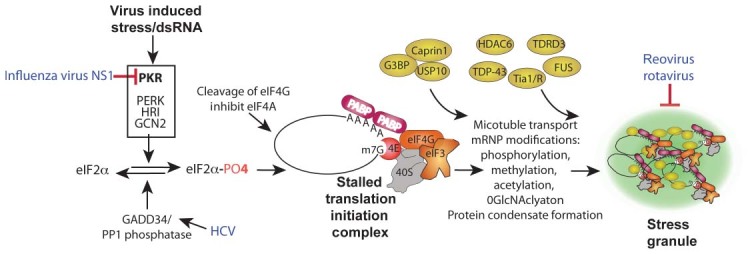Figure 1.

Stress granule assembly and interference by RNA viruses modulating PKR. Virus infection causes stress at multiple levels that reduces host translation through activation of eIF2 kinases, principally PKR, cleavage or inactivation of other initiation factors or other mechanisms. These translation insults convert active polysome mRNPs into stalled translation initiation complex mRNPs containing 40S ribosome subunits, initiation factors and mRNAs. A complex series of events (not depicted) involving nucleation of multiple stress granule proteins such as G3BP1, Tia‐1/TIAR, TDRD3, FUS, TDP43, and HDAC6 plus transport of mRNP complexes on microtubules leads to aggregates of translation initiation complex mRNPs in stress granules. Reovirus and rotavirus can repress SGs, but mechanisms are not known. Note that many viruses control PKR activation; only those discussed in the text are indicated. Also note that stress granule triggers by virus infection may operate at other levels and feed into this scheme.
